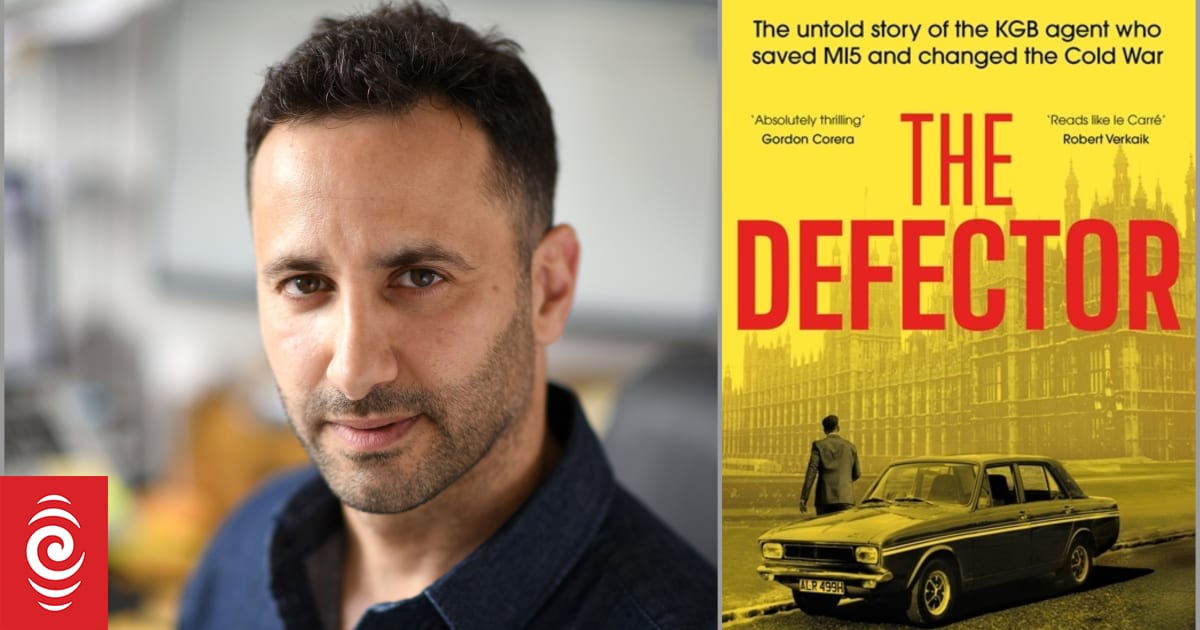World
Soviet Spy Oleg Lyalin’s Defection Changed Cold War Dynamics

In March 1971, Oleg Lyalin, a Soviet trade representative in the United Kingdom, made a shocking move that would alter the course of the Cold War. After being arrested for drink driving, Lyalin chose to turn himself in to MI5, revealing his identity as a Soviet spy and requesting asylum. His unexpected approach raised alarms within Western intelligence circles, particularly the CIA and MI5, who had long feared such a scenario could be a ploy to disseminate disinformation.
The story of Lyalin’s defection is detailed in the book *The Defector: The Untold Story Of The KGB Agent Who Saved MI5 And Changed The Cold War*, authored by British writer and filmmaker Richard Kerbaj. Drawing from recently declassified documents, Kerbaj explains that during this period, MI5 was recovering from the fallout of high-profile defections, notably those of Guy Burgess and Donald McLean in 1950, and Kim Philby in 1963.
At this time, the CIA was experiencing what Kerbaj describes as “peak paranoia,” and MI5 was struggling to regain its footing. The security service had become preoccupied with internal mole hunts, suspecting even high-ranking officials such as MI5’s Deputy Director General, Graham Mitchell, and the Director General himself. The agency’s growing fears were compounded by concerns that Harold Wilson, the Prime Minister, might be a Soviet agent.
Lyalin’s background was particularly alarming; he was trained in the KGB’s Department V, which specialized in assassinations and sabotage. He was in the UK to plot military attacks and even considered contaminating Britain’s seawater with radioactive waste to blame on the United States. Despite the gravity of his espionage activities, Lyalin’s motivations for defecting were surprisingly personal. He cited complications in his love life, mentioning he had four girlfriends and wished to return to Moscow to divorce his wife.
MI5 initially viewed Lyalin with skepticism, considering him potentially unstable or a trap. However, he unveiled a vast network of Soviet spies across the UK, prompting MI5 to act decisively. This led to a mass expulsion of 105 Soviet diplomats and operatives, a move that was kept secret from the Americans to avoid jeopardizing delicate diplomatic relations.
Kerbaj notes that British Prime Minister Ted Heath was particularly concerned that U.S. President Richard Nixon might object to the expulsion, as Nixon was focused on maintaining détente, a policy aimed at easing tensions between the superpowers. The British authorities withheld information about Lyalin’s defection and the subsequent expulsions until after the events occurred, a strategy that frustrated their American counterparts but ultimately allowed MI5 to achieve a significant victory.
The implications of this expulsion were far-reaching, impacting the KGB’s operations. At the time, the agency was led by Yuri Andropov, who later became the head of state. Lyalin’s defection revealed critical information about the activities of Department V, leading to its shutdown. This department would remain inactive until the 1990s when it was revived under Vladimir Putin, who used its resources to target dissidents like Alexander Litvinenko, a former KGB officer poisoned in London in 2006.
Lyalin’s decision to defect not only altered the landscape of espionage during the Cold War but also underscored the complexities of personal motives amidst broader geopolitical tensions. His story serves as a reminder of the unpredictable nature of intelligence and the human factors that can influence global events.
-

 Sports2 months ago
Sports2 months agoNetball New Zealand Stands Down Dame Noeline Taurua for Series
-

 Entertainment2 months ago
Entertainment2 months agoTributes Pour In for Lachlan Rofe, Reality Star, Dead at 47
-

 Entertainment3 weeks ago
Entertainment3 weeks agoNew ‘Maverick’ Chaser Joins Beat the Chasers Season Finale
-

 Sports2 months ago
Sports2 months agoSilver Ferns Legend Laura Langman Criticizes Team’s Attitude
-

 Sports2 days ago
Sports2 days agoEli Katoa Rushed to Hospital After Sideline Incident During Match
-

 Politics1 month ago
Politics1 month agoNetball NZ Calls for Respect Amid Dame Taurua’s Standoff
-

 Entertainment2 months ago
Entertainment2 months agoKhloe Kardashian Embraces Innovative Stem Cell Therapy in Mexico
-

 World3 months ago
World3 months agoPolice Arrest Multiple Individuals During Funeral for Zain Taikato-Fox
-

 Sports3 months ago
Sports3 months agoGaël Monfils Set to Defend ASB Classic Title in January 2026
-

 Entertainment1 month ago
Entertainment1 month agoTyson Fury’s Daughter Venezuela Gets Engaged at Birthday Bash
-

 Sports1 month ago
Sports1 month agoHeather McMahan Steps Down as Ryder Cup Host After Controversy
-

 World2 weeks ago
World2 weeks agoSevere Winds Hit New Zealand, Over 100 Flights Canceled





















